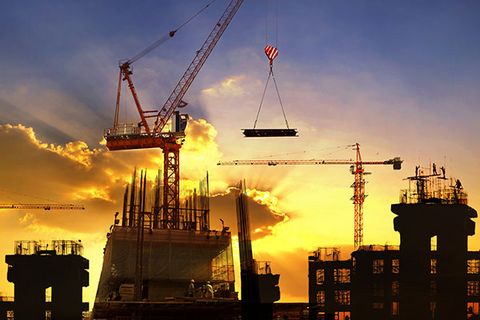IMF urges infrastructure spend in Covid recovery

Investment is now urgently required in sectors critical to controlling the pandemic, such as healthcare, schools, safe buildings, safe transportation, and digital infrastructure, said the International Monetary Fund (IMF) on Monday.
IMF said that its new fiscal monitor shows that increasing public investment in advanced and emerging market economies could help revive economic activity from the sharpest and deepest global economic collapse in contemporary history.
It could also create millions of jobs directly in the short term and millions more indirectly over a longer period. Increasing public investment by 1% of GDP could strengthen confidence in the recovery and boost GDP by 2.7%, private investment by 10% and employment by 1.2% if investments are of high quality and if existing public and private debt burdens do not weaken the response of the private sector to the stimulus.
Low interest rates globally also signal that the time is right to invest. Savings are plenty, the private sector is in waiting mode, and many people are unemployed and able to take up jobs created through public investment. Private investment is depressed, owing to acute uncertainty on the future of the pandemic and the economic outlook. Thus, in many countries, the time is now to undertake high quality public investment, in priority projects. It can be done by borrowing at low cost.
Public investment can play a central role in the recovery, with the potential to generate, directly, between 2 and 8 jobs for every million dollars spent on traditional infrastructure, and between 5 and 14 jobs for every million spent on research and development, green electricity, and efficient buildings.
While maintaining the focus on addressing the health emergency and providing lifelines for households and businesses, governments need to prepare economies for the transition to the post-Covid-19 world—including by helping people get back to work.
To ensure that investment creates jobs right now—when they are needed the most—countries should ramp up infrastructure maintenance, where safe, said the IMF report.
Now is also the time to start reviewing and restarting promising projects that were delayed because of the crisis, speeding up projects in the pipeline to bring them to fruition within the next two years, and planning for new projects aligned with the postcrisis priorities, it added.
Poorer countries—especially in the context of the Sustainable Development Goals 2030—will need grant support from the international community. Investing in adaptation to climate change is critical, especially in countries susceptible to floods and droughts. Official aid has been available, but the $10 billion allocated in 2018 falls short of the $25 billion of investment required annually in low-income economies, according to IMF staff estimates.
Maintaining the quality of investment projects is essential. We find, for example, that the cost of an individual project can increase by as much as 10 to 15% just because it is undertaken in a period when investment is particularly high.
Cost increases tend to be higher and project delays are longer if projects are approved and undertaken when public investment is significantly scaled up, our analysis shows. Fast increases in public investment also carry the risk of facilitating corruption. Likewise, improving the governance of project selection and management is crucial, because there is scope to improve the efficiency of infrastructure by one third on average.
Catalyzing private investment
Public investment could boost growth enough to trigger additional private sector job creation, said the IMF report.
However, during this time of high uncertainty, public investment can boost private investors’ confidence in the recovery and induce them to invest too, in part because it signals the government’s commitment to sustainable growth. Public investment projects can also stimulate private investment more directly.
For example, investments in digital communications, electrification, or transportation infrastructure allows new businesses to emerge. Likewise, our results show that investments in healthcare and other social services are associated with sizable increases in private investment at the one-year horizon.
In sum, public investment is a powerful element of the stimulus packages to limit the economic fallout from the pandemic, said the IMF.
Even as countries continue to save lives and livelihoods, they can lay the foundation for a more resilient economy by investing in job-rich, highly productive, and greener activities, it added. – TradeArabia News Service
Source: http://www.tradearabia.com/news/BANK_373570.html


